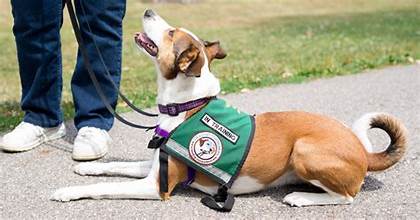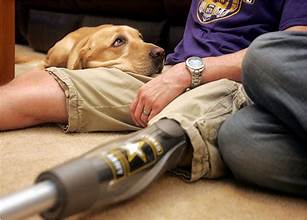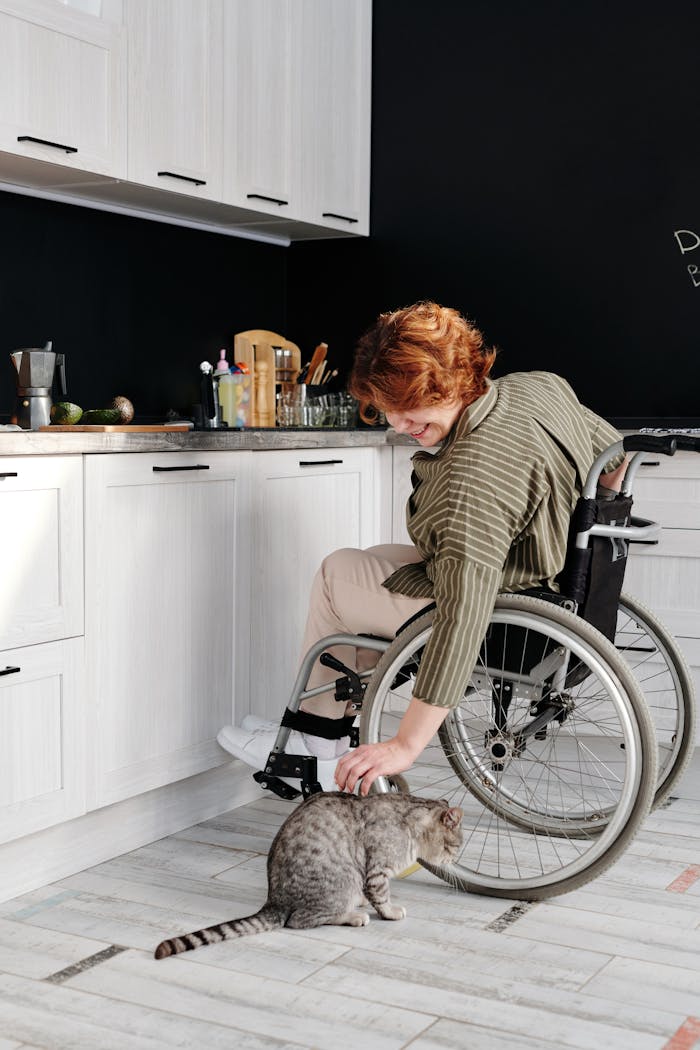Living with a psychiatric disorder can be overwhelming, isolating, and unpredictable. Conditions such as PTSD, anxiety, depression, bipolar disorder, and schizophrenia. It often affects daily functioning, making simple tasks feel like major hurdles. For many individuals, the presence of a psychiatric service dog or other service pet for mental health can bring a sense of relief and comfort, providing life-changing support.
Unlike emotional support animals, which offer comfort simply through companionship, psychiatric service animals are specifically trained to perform tasks that directly mitigate the symptoms of a mental health condition. Their work not only provides comfort but also empowers individuals to regain independence, stability, and confidence in daily life, giving them a sense of control over their condition.
What Is a Psychiatric Service Dog?
A psychiatric service dog (PSD) is a specially trained service animal for mental health disorders. Under the Americans with Disabilities Act (ADA), service animals are legally recognized and allowed access to public spaces because of their essential role in supporting their handler. The process of obtaining a service dog involves training, certification, and understanding the legal rights and responsibilities that accompany ownership.

These dogs do more than provide companionship—they perform specific tasks tailored to meet the psychiatric needs of their owners. For example, a PTSD service dog may interrupt flashbacks, while an anxiety service dog may provide grounding during panic attacks.
How a Psychiatric Service Animal Helps with Mental Health
Here are some of the most common ways a psychiatric service dog supports individuals living with psychiatric conditions:
1. Interrupting Harmful Behaviors
Service dogs can be trained to recognize self-harm behaviors or panic attack symptoms and intervene with nudges, pawing, or deep pressure therapy to help redirect focus.
2. Providing Grounding During Panic or Dissociation
People with PTSD, anxiety, or dissociative disorders often feel detached from reality. A psychiatric service pet can “ground” their handler by licking, nudging, or leaning against them to bring them back to the present.

3. Reminding Handlers to Take Medication
Consistency with medication is vital for managing psychiatric conditions. Service dogs can remind their handler to take medicines on time or even retrieve pill containers.
4. Reducing Anxiety in Crowded Spaces
For those who feel unsafe or overwhelmed in public, service dogs create a buffer zone by positioning themselves between their handler and others, lowering stress levels.
5. Waking Their Handler from Nightmares
A PTSD service dog can be trained to wake its handler from night terrors or nightmares, reducing prolonged distress.
6. Encouraging Daily Routines
The responsibility of caring for a service animal—feeding, walking, exercise—helps build healthy daily routines and provides a sense of purpose.
Why Service Pets for Mental Health Are So Valuable
- Increased Independence: Service animals enable individuals to navigate daily life with greater confidence and reduced reliance on others.
- Improved Safety: Psychiatric service dogs can detect emotional episodes early and help prevent harm.
- Emotional Stability: The bond between a service pet and handler helps foster calmness and resilience.
- Legal Rights: Unlike emotional support animals, psychiatric service dogs have legal access to public spaces, so handlers don’t have to sacrifice support to participate fully in society.
Final Thoughts
Psychiatric disorders can make life unpredictable, but with the help of a psychiatric service dog, many people regain stability and independence. These highly trained animals are more than companions—they are lifelines that provide essential support for mental health.If you or a loved one is struggling with a psychiatric disorder, remember that exploring the option of a psychiatric service animal can be the first step toward a healthier, more empowered future. Don’t hesitate to take this step, as it could make a significant difference in your life.




